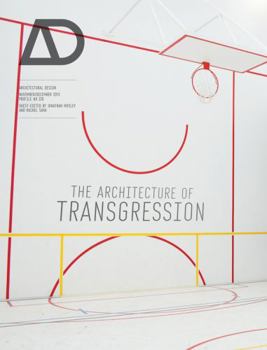The Architecture of Transgression
(Part of the Architectural Design Series)
Transgression suggests operating beyond accepted norms andradically reinterpreting practice by pushing at the boundaries ofboth what architecture is, and what it could or even should be. Thecurrent economic crisis and accompanying political/social unresthas exacerbated the difficulty into which architecture has longbeen sliding: challenged by other professions and a culture ofconservatism, architecture is in danger of losing its prized statusas one of the pre-eminent visual arts. Transgression opens up newpossibilities for practice. It highlights the positive impact thatworking on the architectural periphery can make on the mainstream, as transgressive practices have the potential to reinvent andreposition the architectural profession: whether they aresubverting notions of progress; questioning roles and mechanisms ofproduction; aligning with political activism; pioneering urbaninterventions; advocating informal or incomplete development;actively destabilising environments or breaking barriers of taste.In this new dispersed and expanded field of operation, the balanceof architectural endeavour is shifted from object to process, fromservice to speculation, and from formal to informal in a way thatprovides both critical and political impetus to proactively affectchange.
Contributors: Can Altay, Edward Denison and Guangyu Ren, KimDovey, Chris Jenks, David Littlefield, Silvia Loeffler, AlistairParvin, Louis Rice, Patrik Schumacher and Robin Wilson
Featured architects: atelier d'architectureautog r e, Lina Bo Bardi, Construire/La Machine, EXYZT, Didier Faustino/Bureau des M sarchitectures, Lacaton &Vassal, N55, Catie Newell/*Alibi Studio, Wang Shu, Superflex andBernard Tschumi
Related Subjects
Architecture




